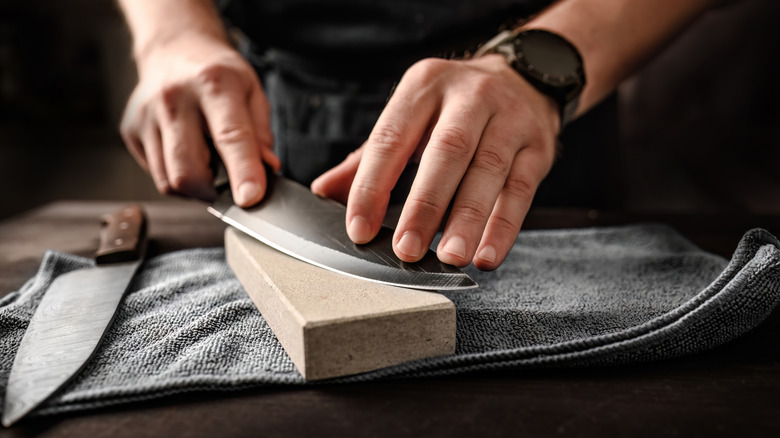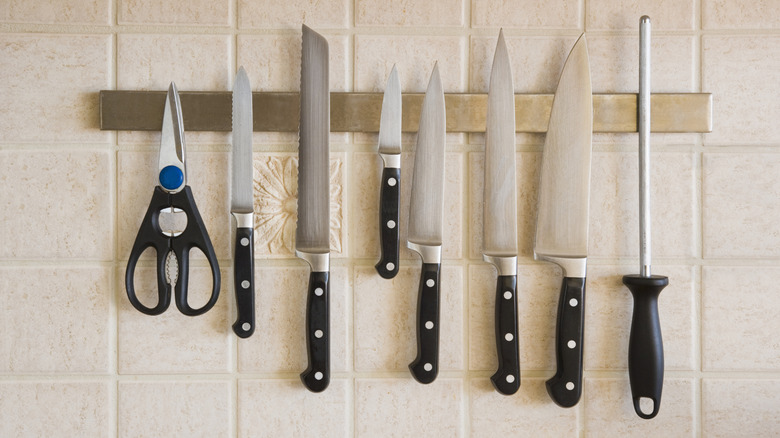Chances Are, You Should Sharpen Your Knives More Often
We may receive a commission on purchases made from links.
"You need, for God's sake, a decent chef's knife." Recognize this quote? Chances are, if you're reading this website or flipped through the pages of the 2000 New York Times Bestseller "Kitchen Confidential," you'll know it's none other than Saint Anthony Bourdain, the late chef and author who had strong opinions on everything — including his favorite brand of kitchen knives. It's not enough to purchase the right knife, however. You've also got to know how to take care of them.
Here's the thing most home cooks don't realize: dull knives are way more dangerous and frustrating than sharp ones. If you haven't sharpened your knives in a while (or ever), it's time to change that.
Now, we're not talking about a honing steel, which is a metal rod that helps align and straighten the edge of a knife. Sharpening actually removes a small amount of metal to create a new, razor-fine edge. Over time, your knife's edge wears down from chopping, washing, and regular use. That once-smooth blade starts to curve and round at the microscopic level, making it harder to cut precisely and safely.
So, how often should you sharpen? It depends on how often you cook. As a general rule, most home cooks should aim for at least twice a year. If you cook daily, once every few months might be better. You don't need to get fancy or invest in an expensive sharpening setup, either.
A sharp knife makes prep smoother and safer
Why does all this matter if you're not a Bourdain wannabe? For starters, a dull knife forces you to press harder which increases your chances of slipping and injuring yourself. Whether you need to chiffonade basil or break down a butternut squash, a good knife lets you stay in control. You might be surprised how much more enjoyable "mise en place" is with a laser-sharp blade.
Many kitchen stores, local butchers, and even farmers markets offer professional sharpening services. Whetstone is considered the gold standard for getting the sharpest edge on your kitchen knives because it allows for incredible precision. But unless you're a hard-core home cook and not easily intimidated, most experts agree that outsourcing this technique to a professional is the way to go.
Manual sharpeners are way more approachable for the average home cook. These tools are designed for ease and speed. You just pull the blade through the guided slots a few times and you're good to go. Always remember to wash your knives by hand (never in the dishwasher) and store them properly. A magnetic strip, knife block, or blade guard will help preserve your newly-sharpened blade longer. Think of sharpening your knives similar to the way you'd maintain a good cast iron skillet or keep an espresso machine clean — it's a ritual that enhances your daily cooking experience.

